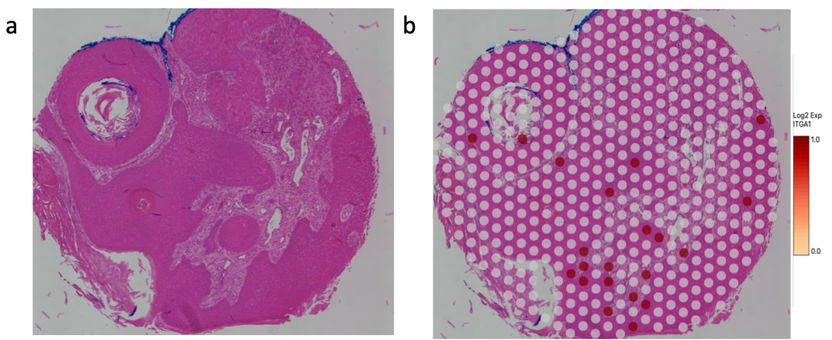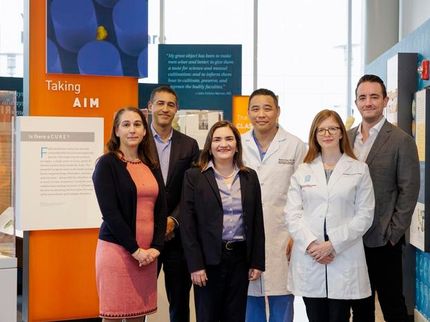Skin flora as the key to cancer therapy?
Advertisement
Can the skin microbiome, also known as skin flora, influence the effectiveness of cancer therapy? Dr. Robin Reschke from the Department of Dermatology at Heidelberg University Hospital (UKHD) and the National Center for Tumor Diseases (NCT) in Heidelberg wants to find out. German Cancer Aid is generously funding his research at the Medical Faculty of Heidelberg University. It has accepted Reschke into the renowned Max Eder Program and will support him and his junior research group with more than 700,000 euros over the next four years.
Dr. Robin Reschke is interested in therapeutic approaches to advanced skin cancer: he is particularly fascinated by the fact that in some cases of skin cancer, Immunotherapy works impressively well by activating the body's own immune system, while in other cases it fails completely. From September, he and his Max Eder junior research group want to find out whether there is a connection between the microorganisms that colonize the skin (skin microbiome) and the effectiveness of immunotherapy against skin tumour cells.
The so-called T cells, white blood cells that can fight both pathogens and cancer cells, are important for the body's own immune defence. The research group is focusing in particular on tissue-resistant memory T cells (TRM cells), which are produced locally in the event of infections, for example, and remain there. They become active when the same infection or cell degeneration occurs again: they then release signaling substances that help to fight the disease.

The image shows the application of Spatial transcriptomics technology on a tissue sample of a squamous cell carcinoma. It can be seen how the protein molecule integrin, shown as red dots in b), is distributed in the tissue. The protein is responsible for cell-to-cell binding and communication between the cells.
Reschke/UKHD
Successful therapy thanks to the microbiome?
In parallel, the researchers are investigating the microbiome of patients who have received immunotherapy for skin cancer. Among other things, they are using a relatively new method, spatial transcriptomics, with which cell types can be identified on the basis of their mRNA values and assigned directly in the tissue. In this way, the immunological microenvironment of the tumor can be precisely depicted and examined.
Initially, the 34-year-old Reschke and his current three colleagues are concentrating on one form of white skin cancer, advanced squamous cell carcinoma, and comparing the microbiome of patients who benefit from immunotherapy with "non-responders". "We are naturally curious to see whether the microbiome of patients in whom immunotherapy has worked differs from the microbiome of patients in whom it has not worked," says Robin Reschke.
If there is a connection between the microbiome and the number of TRM cells and thus the success of the therapy, Reschke wants to find corresponding biomarkers or target molecules in the next step. In future, the microbiome could possibly be specifically modified, for example with a cream, so that more cancer patients can benefit from immunotherapy. Reschke hopes that his research will enable him to extend the use of immunotherapy to skin metastases, for example from melanoma, as well as to other types of cancer.
Note: This article has been translated using a computer system without human intervention. LUMITOS offers these automatic translations to present a wider range of current news. Since this article has been translated with automatic translation, it is possible that it contains errors in vocabulary, syntax or grammar. The original article in German can be found here.
























































